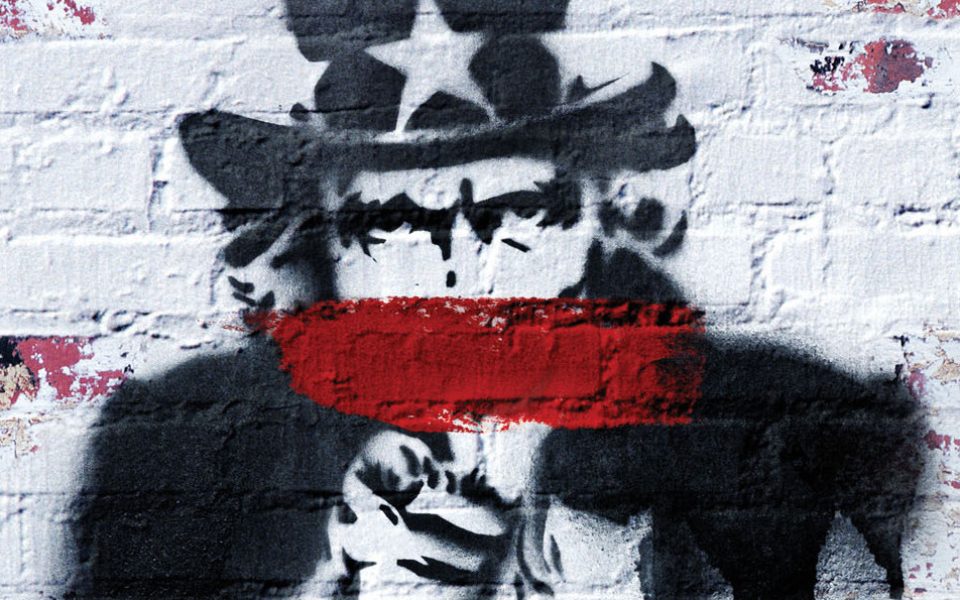Around the time of the 2010 midterm elections, all those conservative yellers in tri-corner hats thumping their chests about the Constitution (aka the tea party) accomplished at least one good thing: They prodded people across the ideological spectrum to start studying the history of the early republic, if for no other reason than to avoid losing an argument.
A similar phenomenon seems to be occurring with the advent of the new administration. Anyone who smells a whiff of fascism surrounding Donald Trump’s election or wants to understand why he’s playing footsie with Russia has to be scrambling right now to bone up on their World War II history.
A great place to start is “Oliver Stone’s Untold History of the United States,” a 10-part television documentary released in 2012 that has recently become available on Netflix. Stone has called the project — which took four years to complete — “the most ambitious thing I’ve ever done.”
I’ve only watched the first three episodes, dealing respectively with the initiation of World War II, Franklin Roosevelt and the rivalry between Harry Truman and Henry Wallace, and the advent of the atomic bomb, but the brisk pacing and provocative framing of the series augurs that I’ll probably finish it soon.
For a number of reasons it’s instructive viewing. Depictions of the German blitzkrieg, imperial Japan’s ruthless occupation of China and the US-British firebombing of Dresden and Tokyo inflicting massive civilian casualties should make us reluctant to stumble into war. Also, the series argues persuasively that it was the Soviet Union, not the US-led invasion of Normandy, that turned the tide of the war in Europe. That, and the staggering number of Soviet casualties, should tell us something about the national pride that propels Vladimir Putin’s dreams of a resurgent Russia.
“Untold History” certainly takes an angle. And while viewers should come armed with a degree of skepticism, it’s also worth considering the series’ proposition that the United States could have easily taken a different path with a radically different outcome.
“We are going to propose, among other things, a forgotten set of heroes, people who suffered for their beliefs and have been lost to history because they did not conform,” Stone says in the introduction. “And we are going to debunk some of those heroes that you believe in, not with malice, but by restating the facts.”
Stone’s hero is Henry Wallace, who served as vice president before he was sidelined by the Democratic Party’s conservative wing in the 1944 election in favor of the more pragmatic, centrist Truman. Fatefully, Roosevelt was dying, putting Truman in position to drop the atomic bomb on Hiroshima and Nagasaki, and to launch the Cold War. Stone suggests that the progressive Wallace would have forged a vision more attuned to the needs of working people and geared towards greater international cooperation.
There’s plenty of room to quibble with Stone’s editorial decisions: While material about the Japanese internment camps might thematically fit with the run-up to atomic bomb, it comes across as a cheap shot against Truman, who Stone clearly holds in low regard. It would have been more intellectually honest and complicating to use it to tell the story of Roosevelt, who ordered the internment, and who is otherwise lionized in the series.
Yet all in all, Stone’s injunction seems prophetic for the modern era: “Unless we remind ourselves of the good that we have lost, it’s not easy to imagine a better future.”
Join the First Amendment Society, a membership that goes directly to funding TCB‘s newsroom.
We believe that reporting can save the world.
The TCB First Amendment Society recognizes the vital role of a free, unfettered press with a bundling of local experiences designed to build community, and unique engagements with our newsroom that will help you understand, and shape, local journalism’s critical role in uplifting the people in our cities.
All revenue goes directly into the newsroom as reporters’ salaries and freelance commissions.


Leave a Reply